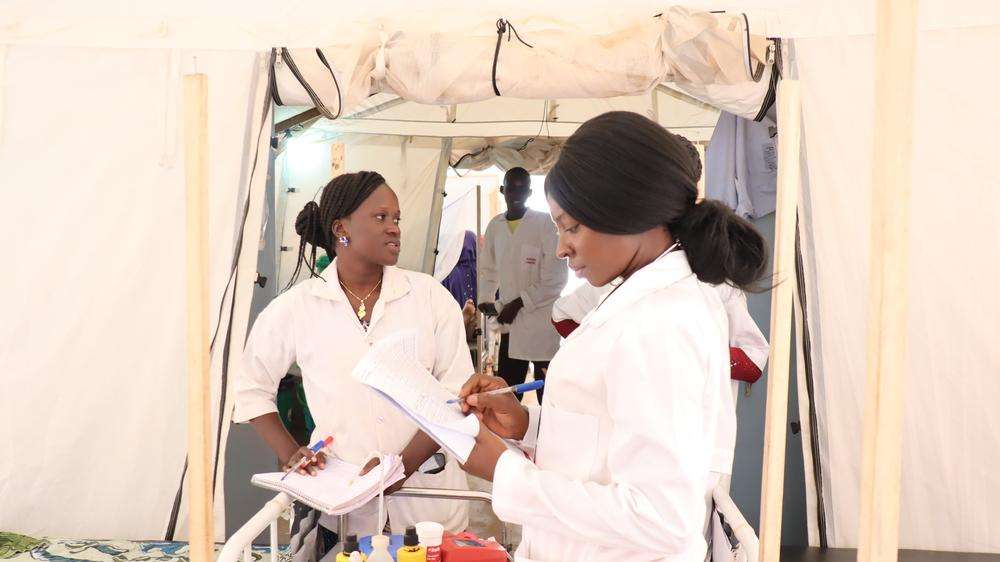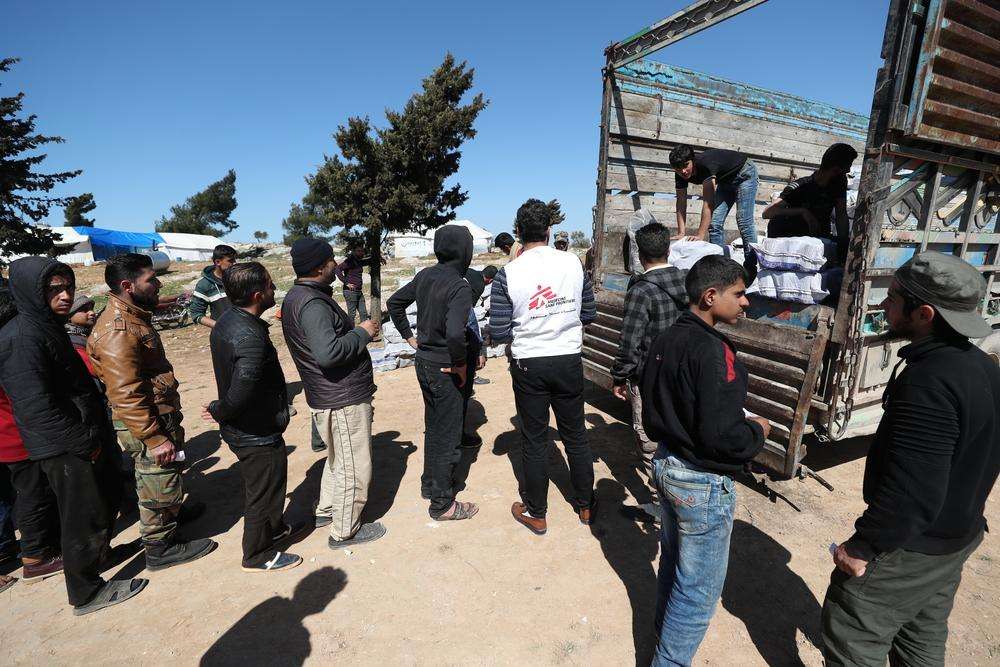As the war in Syria enters its tenth year, Idlib is currently the area most affected by the ongoing conflict. Daily bombing and shelling in the northwestern region of the country have displaced almost one million people in the last four months, many of them now crowded along the Turkish border. Medical facilities and structures housing displaced people have not been spared; since January 2020, 80 hospitals have been rendered out of service due to the relentless attacks. Here, Cristian Reynders, a field coordinator for Doctors Without Borders/Médecins Sans Frontières (MSF) projects in northwestern Syria, talks about the additional threats posed by the spread of the new coronavirus—and what needs to be done to prevent an already catastrophic humanitarian situation from becoming worse.
Last week, Syria confirmed its first case of COVID-19. Since then, the number of cases has risen slightly, but so far, no positive cases have been identified in Idlib. However, our teams do not want to wait for this to happen before bracing themselves for it, because we know how concerning a spread of the disease in such place could be. Before the COVID-19 pandemic, Idlib was a humanitarian emergency. Today, it still is, [and] the COVID-19 pandemic has added another layer of complexity to a situation that was already catastrophic.
In countries such as Italy, Spain, and the United States, we are seeing public hospitals on the verge of collapse because of the spread of COVID-19. How, then, will Idlib’s health system cope? Health care in northwestern Syria has been badly affected by the conflict and was already stretched to its limit before the spread of the new coronavirus was declared a pandemic.
Protection measures can’t be implemented
Most recommendations for protecting people against the virus and slowing down its spread simply cannot be implemented in Idlib.
How can you ask people to stay at home to avoid infection? They no longer have a home. We are talking about almost one million displaced people—about one-third of Idlib’s total population— most of them living in tents in camps.
When a person shows symptoms of COVID-19, they are asked to self-isolate. Where is the space to do this in Idlib? Many families have to share tents with other families.
People are also asked to practice good hygiene measures and wash their hands frequently. But how can you practice good hygiene when you live surrounded by mud?
If you develop serious symptoms, you need to go to a hospital. But when only a handful of hospitals are open, and these hospitals are already overstretched and are completely unequipped to deal with a public health emergency, where can you actually go?
Impossible choices
While preparing for a potential spread of COVID-19 in northwestern Syria, medics too are faced with impossible choices. They need to prioritize constantly: to choose between getting trained and ready in case the pandemic reaches Idlib or focusing on the never-ending flow of patients coming for treatment [for other conditions]. Medical staff in Idlib are doing their very best with the little means at their disposal. I will never cease to be impressed by their capacity to stand firm in the face of so many difficulties, by their resilience, by their commitment to keep on working in these unbelievable conditions.
We are putting everything we can in place, but it won’t be enough .... Unless there is immediate international mobilization. Unless medics and humanitarian organizations are given the means to tackle this potential catastrophe properly before it happens. Unless hospitals are given the supplies and equipment they need to face this ‘crisis on top of a crisis’.
Cristian Reynders - MSF field coordinator
Humanitarian organizations also have to make impossible choices. What measures should we take to prevent a potential spread of the virus? Should we stop our work in the camps to prevent people gathering in front of our mobile clinics or during our distributions of essential items? Are we protecting people if we stop our activities, or are we depriving them of essential services and therefore potentially putting their health at greater risk? This dilemma is being faced constantly by those in our field of work.
MSF has decided to keep our activities running. This is because we know that the assistance we provide, even if it does not cover all the needs, is vital for tens of thousands of people across Idlib. And because more than 35 percent of the patients we see in our mobile clinics are already suffering from respiratory infections, and a potential spread of the virus could quickly lead to complications. People need our help, and we don’t want to stop providing it. But we are also adapting our activities and trying to act responsibly in the face of a potential spread of COVID-19.
Adapting our response
In the camps, we’ve started implementing measures of social distancing when providing our regular services. When running mobile clinics, we now only allow small groups of people to gather around our trucks while waiting for consultations. During distributions of essential items, we ask people to keep a certain distance between each other. This way, we are still helping displaced people, but we are also decreasing the risks of them getting the virus when coming for assistance. Of course, we also want to protect our own teams and have equipped them with protective equipment, so they can continue working in the camps.
We’ve been working on getting ready at the hospital level too. The medical facilities that remain open in Idlib province play a vital role for the population, and we need to focus on supporting them in getting prepared. We’ve set up hygiene committees in three different hospitals already supported by MSF. We’ve also set up new triage systems in these facilities to better identify and isolate patients with suspected COVID-19. And we are conducting trainings in patient-flow management in coordination with local health authorities and the World Health Organization (WHO).
What it will take
We are putting everything we can in place, but pragmatically speaking it probably won’t be enough if COVID-19 starts spreading tomorrow in Idlib province. What is happening in northwest Syria today is a humanitarian emergency. A public health emergency in the midst of all this could quickly become catastrophic. Unless….
Unless there is immediate international mobilization. Unless medics and humanitarian organizations are given the means to tackle this potential catastrophe properly before it happens. Unless hospitals are given the supplies and equipment they need to face this ‘crisis on top of a crisis’.
But the answer to this situation cannot only be medical. Healthcare is of course key, but it is not the only need in Idlib. People still need food, people still need shelter, people still need sanitation. When facing a pandemic, all of these things are essential.
COVID-19 is touching everyone around the world. Whether people are in Syria or in Italy, they are all connected. This virus affects everybody. And just as this virus has no borders, I hope that solidarity will have no borders either.”





